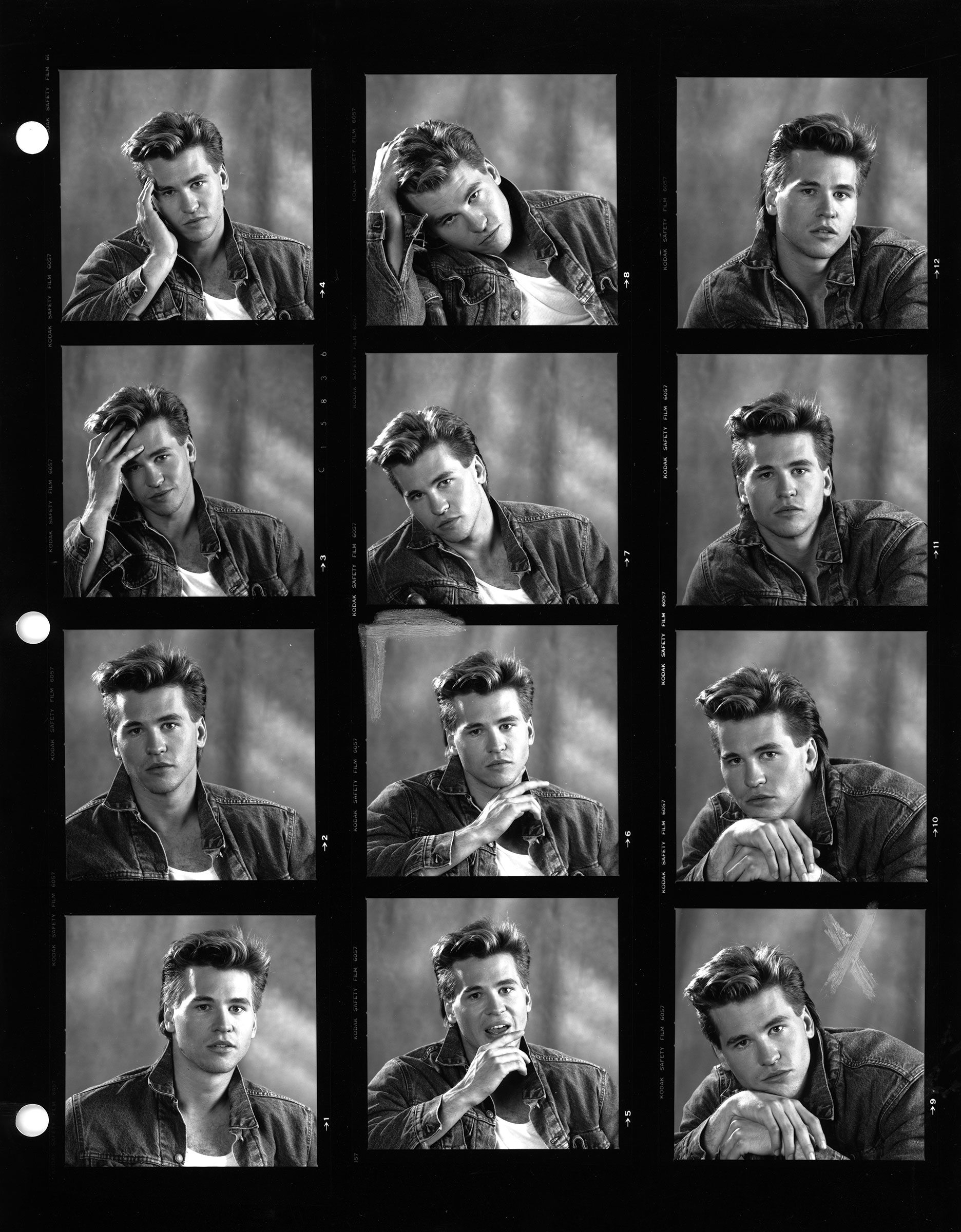The key to Val Kilmer’s appeal may lie in the performance he gave in a film many think of as a throwaway, Joel Schumacher’s shiny, intentionally kitschy, and absurdly entertaining Batman Forever, from 1995. Kilmer was inheriting the Batman mask from Michael Keaton, who’d worn it, beautifully, in a duo of earlier films. This new Batman movie didn’t have the gravitas of the earlier ones. But behind that mask, which obscures roughly half of any face that’s behind it, Kilmer had turned up the wattage on his sense of humor, and irony, to supersonic levels. He was both laid-back and wound up. Kilmer later said he hated making the movie, but good performances generally have little to do with the experience an actor had in shaping them. In playing Batman, and Bruce Wayne, Kilmer committed to self-serious ridiculousness with understated gusto. You might think the role would be beneath a Juilliard-trained actor—admitted at 17, he was at the time one of the youngest students accepted to the school’s acting program. But Kilmer, who died at 65 on April 1, was wholly comfortable in that sweet spot where ego and commitment intertwine. He made even lowly or silly roles worthy of him.
[time-brightcove not-tgx=”true”]
Kilmer had a reputation for being difficult, or at least just eccentric, but his quirks were enmeshed with his talent. He cared about his craft, but never to the point of overacting; he could be intense, but also intensely poetic, which is why moviegoers who grew up with him might feel his loss keenly, even if, for much of the 2000s, he’d played only supporting or less-flashy roles. In 2014, he was treated for throat cancer; he recovered, and could still speak, but needed to re-learn how to shape words. But even during stretches where he was more or less absent from the scene, he wasn’t the kind of performer who’d completely drop out of cultural consciousness. Every once in a while you’d come across a great Kilmer performance from the ’90s and be reminded how easy he always made it look, as if his carefully honed gifts were a thing he could toss away with a laugh.
Read more: Friends and Admirers Pay Tribute to Hollywood ‘Icon’ Val Kilmer
In 1986, in only his fourth movie role, Kilmer played a cocky pilot who easily intimidated even Tom Cruise’s smirky-confident hotshot Maverick, but even then, his macho swagger was roguish and playful. As Iceman in Top Gun, he bragged about being the best, but you couldn’t hate him for it. His superiority was self-evident, like the rays of the sun. He made an equally luminous Doc Holliday in 1993’s Tombstone, possessed of a bullfighter’s grace in the scene where he appears out of nowhere to get the drunk, ranting criminal Johnny Ringo to stand down. “I’m your huckleberry,” he announces, in his character’s liquid-smoke Southern drawl. That line brought down the house at the time of the movie’s release, and movie fans still love it today. Kilmer, too, knew it was great: he made it the title of this 2020 memoir.
Michael Mann’s 1995 crime epic Heat has so many fine performances, including those given by stars Al Pacino and Robert De Niro, that you might worry some of the supporting actors could slip through the cracks. Not Kilmer, as Chris, the right-hand man of De Niro’s master criminal Neil McCauley. In a pivotal scene, there’s a chance that Chris’ adored wife, Charlene, played by Ashley Judd, might be ready to give him up to the cops. He’s on the run, but he’s come back to find Charlene—as she looks down at him from a motel balcony, she discreetly signals to him that he’s got to cut loose. His face, previously radiant in her grace, falls. It’s one of the movie’s most crushing moments, an example of how one small gesture from an actor can linger in memory forever. But Kilmer could anchor a film on his own, too. He pulled off something nearly impossible in his portrayal of sultry rock shaman Jim Morrison in Oliver Stone’s The Doors (1991). Kilmer’s performance is like a perfume, a conjuring of unnamable moods: muskiness on the rumpled sheets of a hotel bed, the welcoming heat of late-afternoon sunlight, the whorls of dusky paint on an 18th century masterpiece in a gilt frame. The spirit of Morrison was all of those things; Kilmer brought it to life onscreen. He also did his own singing for the role, not so much mimicking Morrison’s velvety tone and snaky phrasing as pouring it, like a sorcerer’s elixir, from his soul.
Leo Scott and Ting Poo’s fine 2021 documentary Val found Kilmer in a much different place. For one thing, his voice had been ravaged by cancer. And no one can remain beautiful, in the same way, forever, though Kilmer’s mischievous, take-no-prisoners smile hadn’t changed much. Much of the film is pieced together from video footage Kilmer shot himself in the 1980s and ’90s. We see him horsing around with his contemporaries Sean Penn and Kevin Bacon around the time the three were appearing in Slab Boys, in 1983, Kilmer’s first Broadway role after graduating from Juilliard. We see him talking back to director John Frankenheimer during the filmmaking of the weird and not-very-good 1996 fantasy adventure The Island of Dr. Moreau—Kilmer wasn’t always easy to work with. But then we see the early-2020s version of Kilmer, signing autographs for fans at Comic-Con. They still think of him as Batman—maybe not their favorite Batman, but Batman nonetheless. Kilmer, speaking in his ravaged voice, says he doesn’t mind. He may have hated making the film, but he’s grateful that people still care about it, and about him. It’s a badge of honor to have been, if not the best Batman, at least the driest, most self-deprecating one. He owns that Batman, forever.

